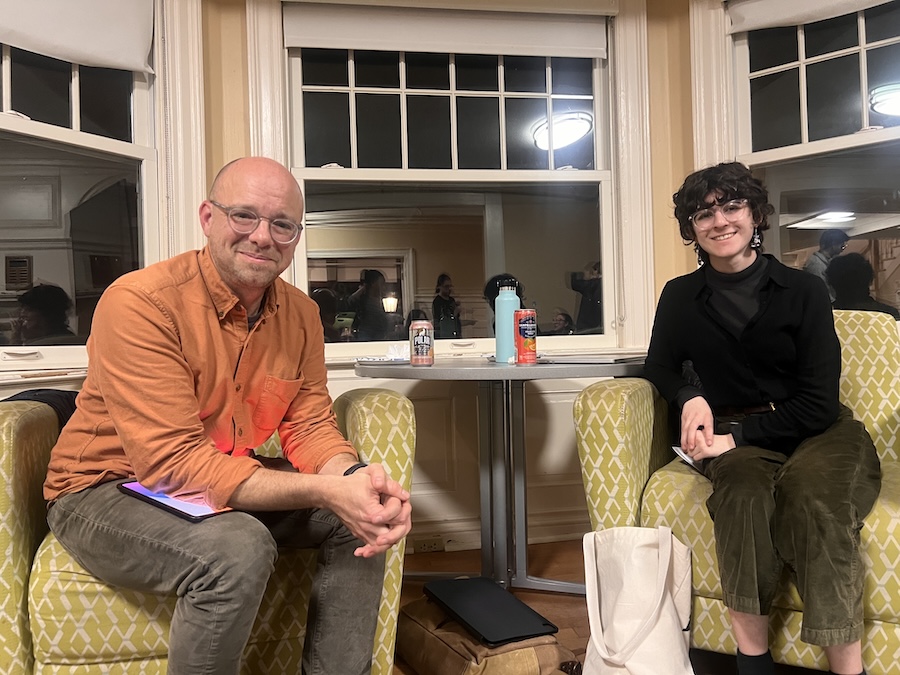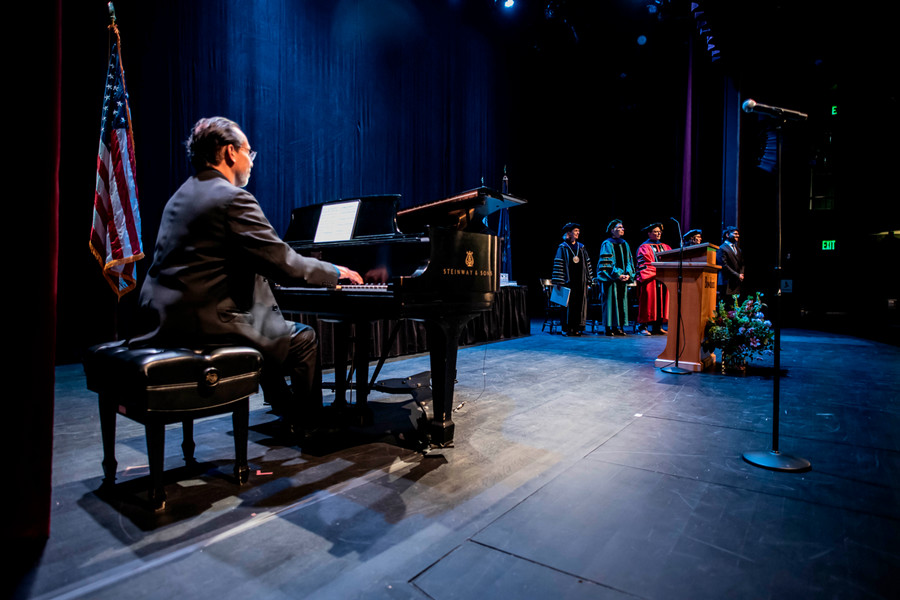From Swan Lake to Blini: New Student Club Promotes Russian Studies
By Rebecca GoldfineWhile Russia’s politics is getting a lot of attention lately, the guiding principle behind the new Russian Club at Bowdoin is that the best way to excite students about the Russian language is to expose them to something with deeper roots: Russian history and culture — its music, cinema, dance, literature, and food.
With this in mind, the club recently organized a field trip to see a Maine State Ballet performance of Tchaikovsky’s Swan Lake. Before that, club members participated in the folk festival Maslenitsa (or Butter Week, Pancake Week, Crepe Week, etc.), at Bates College, where they ate blini and participated in the burning of an effigy.

Augusta Gilchrist ’20 is the first-year student behind the club’s emergence this year. “The best way to stimulate interest in Russian,” he said, “is to have fun and make it valuable to people who don’t speak Russian.” About 50 students are on the club’s roster. Its core members number around 10, which includes mostly students studying Russian.
The hope is that a few non-speakers will be inspired by a club event. “Bowdoin is trying to build a cache of speakers,” Gilchrist said. “Once you see that it is such a rich culture, you might consider taking a language class.” (Even if you don’t end up studying Russian, Gilchrist believes “there’s an intrinsic value” to learning about a culture from which such classics as Anna Karenina, Crime and Punishment, and The Cherry Orchard have emerged.)
There are practical reasons as well to consider studying Russia and its language, namely career opportunities for those rare Americans who are fluent in Russian. “It’s our job, and the job of the Russian department, to let people know about the opportunities of studying a critical language like Russian,” Gilchrist said. “Job opportunities and unique career fields can open up.”
Yet, an active Russian Club is also important for the students already committed to studying the language, argues Associate Professor of Russian Alyssa Gillespie. “It is indisputable that the actual process of learning a language like Russian involves a great deal of detailed, day-to-day focus on minute linguistic matters, and as fun or as challenging as this process might be, it is always helpful for students to have a broader sense of the culture out of which the language emerges and from which it is, in the end, inseparable,” she wrote in an email. “This broader cultural sense can provide an important source of motivation and even passion to stick with the language during the slow but rewarding process of building proficiency.”


The club comes at a time when the Russian Department is having a “perestroika” moment, according to Gilchrist, as it attempts to attract more students and increase its course and extracurricular offerings. And, he noted, the ongoing media reports speculating on the relationship between Vladimir Putin and Donald Trump have not hurt the department’s allure. “Interest in language learning often correlates with geopolitics,” Gilchrist said.
Bowdoin hired Gillespie last year to help build up the Russian department. Going forward, she envisions offering Russian students a choice of two academic tracks: one emphasizing language and literature, and the other focusing on area studies. Russian course offerings have already been expanded and varied. For instance, department faculty this year taught 1,000 Years of Russian Culture and Post-Soviet Russian Cinema (Gilchrist took them both), as well as Hipsters, Rebels, and Rock Stars in Russian Literature and Culture.
Though he’s just a first-year student, Gilchrist is already one of the most advanced Russian speakers on campus. He began studying Russian at his high school, Phillips Exeter Academy in New Hampshire, where the teacher, from Kiev, was called “Mama” by her students. (Her actual name is Inna Sysevich.) She regularly invited students to her house for home-cooked meals.
Sysevich encouraged Gilchrist to apply for a US State Department scholarship — through the National Security Language initiative for Youth — to spend a summer in the city of Kazan studying Russian. “That was great,” he recalled. “I had thought Russia was this monoculture, but the city of Kazan had 50 percent Muslims and a Turkic influence; it looked very Eastern.”
Then Gilchrist, who grew up in Portsmouth, N.H., took a gap year between high school and college to study in Moldova, where he lived with a host family. His Russian improved under the stern tutelage of his instructors, he said. Going into the year, “I was arrogant,” he admitted. “I had been studying Russian for four years and thought I was great. It takes a corpulent former Party member to tell you you are pronouncing something the wrong way to get through to you!”
This summer, Gilchrist has received a $5,000 funded internship grant from Bowdoin Career Planning to intern for the Georgian Foundation for Strategic and International Studies in the Republic of Georgia.
Gillespie says that she too enjoys inviting her students over for home-cooked Russian meals, as it is one way to broaden their experience of the culture. And as Russia is increasingly in the news, often for negative reasons, she noted, “It’s more important than ever to look beyond the politics of the moment and teach students about the long, incredibly rich and fascinating cultural history of the Russian people, Russian speakers, and the Russian nation in all its historical permutations.”



